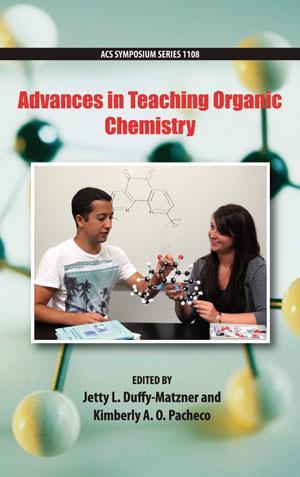A variety of ideas that allow learners to develop the confidence and interest to overcome the challenges associated with understanding organic chemistry
Advances in teaching organic chemistry
Jetty L Duffy-Matzner and Kimberly A O Pacheco (eds)
OUP USA
2013 | 256 pp | £100 (HB)
ISBN 9780841227415

A book on teaching organic chemistry is a rarity and is likely to generate considerable interest. On the whole, this text, which resulted from an American Chemical Society symposium, should not disappoint. The topic is a challenging one and no ‘magic bullet’ solutions are presented. What are provided are insights and evidence-based approaches to help tackle the common difficulties learners encounter.
The book contains 14 chapters and the first four relate to laboratory teaching and address a range of teaching applications (eg heteroaromatic chiral centres, green chemistry and fluorophores). The next five chapters examine ways of engaging and supporting students and include an article by textbook author Neil Schore. He recommends that, instead of teaching organic chemistry, we teach how to solve organic chemistry problems. Two examples of curriculum reform are then presented in which organic chemistry is blended with general chemistry and with biochemistry. The effective application of technology (vodcasts, video tutorials and mobile learning) is discussed in the final three chapters.
Both new and experienced lecturers should find the text useful and, in general, the detail necessary for those who would like to adopt any of the methods or examples discussed is provided. I found the frameworks for developing scientific writing in a laboratory course (chapter four) and linking real world contexts to an introductory syllabus (chapter nine) very useful, as was information on an innovative method of teaching students in different years in the same laboratory to develop a community of practice (chapter 10).
Two minor criticisms are that the ChemTube3D online resource (an excellent aid to understanding reaction mechanisms) was not referred to and some terms are relevant to a national rather than an international audience. However, the subject matter is of wide relevance and this book presents a variety of ideas to avoid the organic chemistry experience being a ‘marathon of memorisation’ and instead allows learners to develop the confidence and interest to overcome the challenges associated with understanding this subject.
Purchase Advances in teaching organic chemistryfrom Amazon.co.uk









No comments yet